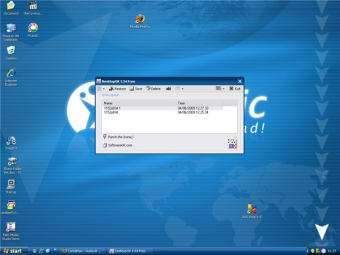

I've had several people come to me with a computer crashing repeatedly for no apparent reason - until I boot up the computer and see gigabytes of data on the desktop.

If your desktop is relatively small - that's not a problem, but if it's so large that it can't index your files before another change occurs it can create a cascade of errors, slowing or even crashing your computer. Change an item on your desktop and Windows needs to re-index it. The larger your desktop is - the larger your user profile is - the longer it can take you to boot, shut down, search indexed files, etc. The User profile is largely made up, not surprisingly, your desktop! The desktop is where all those roads lead back to. When you log into your computer - even if you don't require a password - you are logging into a 'user profile'. You can then simply create desktop shortcuts to these libraries/folders." The best way to store your personal data files is in the Windows 7 Libraries and any sub-folders thereof. "The desktop is not designed to store personal data files - it is intended for shortcuts and gadgets only. Here's the answer you'll see from Microsoft if you ask them directly (or search for 'storing files on the desktop' at ): Actually - there is a valid reason for not storing files on your desktop.


 0 kommentar(er)
0 kommentar(er)
